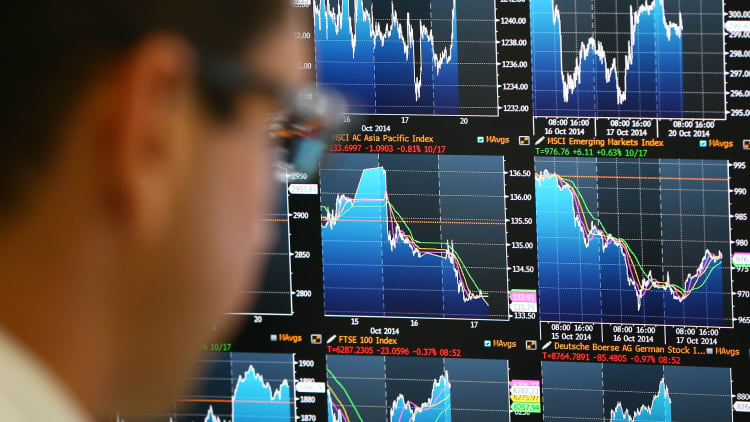
Two of the great darlings of momentum traders are reporting good earnings, but with sales growth slowing, they are getting hurt.
Momentum trading is a fiscal business. Traders want revenue growth, preferably growth of at least 20 percent, but 30 percent or 40 percent is better. When earnings growth decelerates, it can be difficult.
Look at two (former) darlings of momentum traders: Michael Kors and Priceline.
Michael Kors reported an earnings beat for the second quarter. Retailers would kill for these kinds of comps: North American same-store sales, which account for more than 80 percent of revenue, were up 10.8 percent. European same-store sales increased 41.1 percent, as well.
But the North American numbers represent a deceleration. The company saw 18 percent growth in the prior quarter.
Kors also reduced full-year same store sales guidance to the mid-teens from the high-teens. Third quarter guidance of $1.31 to $1.34 also was at the low end of consensus. The company did announce a $1 billion share repurchase program.
The stock was trading down 7 percent at the open.
Priceline reported third quarter earnings and revenue above expectations, but it has the same problem as Michael Kors: it's a rapidly growing company that suddenly grows a little less rapidly.
This is not surprising. Priceline gets more than half of its earnings from Europe.
The midpoint of fourth quarter bookings growth guidance—a key metric—indicates roughly 20 percent growth, assuming neutral currency effects. Those are great numbers by most companies' standards, but it's below expectations and below the 32 percent growth in the second quarter. Fourth quarter guidance is below expectations as well.
Priceline opened down 6 percent.
Elsewhere:
1) West Texas crude dropped into the $70s. I know everyone wants to blame this on the Saudis, but how about the Iranians? Overnight, there was talk of an Iranian nuclear deal, that might bring even more oil to market. That may be why Saudi Arabia does not want to rush into cutting production. This is the Saudis' biggest fear: that Iran will open up normal diplomatic relations with the U.S. and Europe. They will then open their oil and gas sector, which would leave Saudi Arabia in a really bad situation.
The question is, how much will oil in the $70s discourage new drilling in U.S. shale plays? That was clearly a part of Saudi Arabia's strategy in lowering prices to the U.S. yesterday. So far, not much. But service contracts should be tumbling.
The oil exploration and production companies will say, "I want a 20 or 30 percent reduction in prices to rent your oil drill, or I am not drilling. Now it's my turn in the saddle. You guys—you oil service guys—had your turn. Now it's mine."
2) Want to see what a strong dollar and weaker Asia demand does to a company? Look at Estee Lauder, which specifically cited "the strength of the U.S. dollar, geopolitical tensions and soft retail environments in certain important markets, like Hong Kong" as reasons for lowering full-year earnings and revenue guidance.
3) Blackstone led a big secondary offering of 90 million Hilton Worldwide Holdings shares, with none of the proceeds going to to the company. There are now 984 million shares outstanding.


